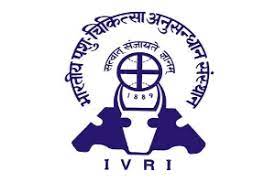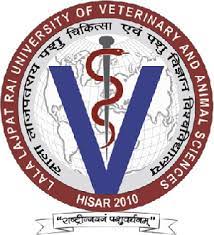A Ph.D. in Veterinary is a three-year doctoral program that focuses on the study of viruses and their interactions with other animals. Coursework focuses on the epidemiology and transmission of pathogens and their immune responses. Graduates are able to apply their research to develop new treatments and diagnostic tests. In addition to studying virology, students can pursue careers in academia or research.
A Ph.D. in veterinary virology is an advanced degree that focuses on the study of viruses and RNA. This type of study enables students to focus on a particular animal or virus. In addition to research, a Ph.D. in veterinary virology can include experimental development and research. It is highly valuable for those who want to make a difference in animal health.
While most animal viruses are specific to a specific species, others are capable of affecting humans. Those who choose to pursue this type of training are able to apply their knowledge to vaccines and therapeutics. This research can ultimately improve animal health and welfare. The scientific research that Ph.D. students conduct can make a difference in the lives of many animals. They can also help create vaccines and other tools to combat the spread of disease.
In a typical Ph.D. in veterinary virology program, graduate students select formal coursework through a process that involves a comprehensive evaluation of their background. This evaluation process is based on their performance in entrance examinations. The results are then evaluated by a panel of faculty and are used to determine admission into the program. A successful student will have extensive experience in their field, which will help them find employment in this field.
Ph.D. in Veterinary Virology Eligibility
Candidates who want to take admission in Ph.D. must have a post-graduate degree in Veterinary Virology and its relevant discipline with at least 55% marks from a recognized university and must have passed the national level entrance examination or university level entrance examination. National level entrance exams like UGC NET / UGC CSIR NET / GATE / SLET or University entrance exams consist of written tests and personal interviews.
Benefits of a Ph.D. in Veterinary Virology
A Ph.D. in veterinary virology can help you find a job with a good salary. Veterinary virology is one of the fastest-growing fields in the biomedical sciences, and research scientists with advanced degrees can benefit the veterinary industry. The field is rapidly evolving, and there are a variety of ways to become a successful researcher. Listed below are some of the benefits of earning a Ph.D. in vet virology.
A Ph.D. in veterinary virology can advance your career. The veterinary profession has a long tradition of comparative medicine and biomedical research. These fields have contributed greatly to human health. Some historical accomplishments include demonstrating that insects can transmit disease, the identification of the first animal virus in 1898, the first leukemia caused by a virus, and the discovery of prions, a type of protein in slow viral diseases.
Those with a Ph.D. in veterinary virology can work in the academic world, in a number of fields, and in public health. The field is also growing in numbers of non-vet faculty, who serve essential roles in the educational and research missions of veterinary colleges. They can conduct groundbreaking research in the field of veterinary medicine. In fact, they are the most qualified people in the field.
The Career and Job Opportunities for Ph.D. in Veterinary Virology
A Ph.D. in Veterinary Virology program consists of three years of classroom study. The course covers various aspects of viruses and their transmission in animals. You will also study their virulence and epidemiology. This will help you create better therapeutic approaches. Besides, you can get a part-time job if you have an excellent academic record.
There are many career options for a Ph.D. holder in virology. These students can pursue research in animal disease and develop key skills for tackling complex issues related to the re-emergence of infectious diseases. Moreover, they can work in a multidisciplinary environment and develop new diagnostic tools to tackle emerging and re-circulating viral diseases. Those with a Ph.D. degree can be appointed as animal scientists or veterinarians.
A doctorate in virology can lead to a variety of positions in veterinary medicine. A doctorate in this field is essential for any veterinarian as he or she will be an expert in controlling and managing epidemics in different species. A virologist can become a professor, a community college instructor, or a laboratory supervisor. Typically, a Ph.D. program in veterinary virology involves four to six years of research. For a Master's degree, you can expect to complete your degree in about two years. For an undergraduate degree in Biology, you can become a lab technician, research assistant, or veterinarian in a veterinary clinic.
The Future Scope of Ph.D. in Veterinary Virology
The Ph.D. program in Veterinary Virology is a three-year course that deals with the study of viruses and their effects on animals. In the program, students learn about underlying mechanisms of virulence, the epidemiology of viral infections, and the immune response to viral infections. The course focuses on the transmission routes of pathogens during infections and how to develop new therapeutic strategies. Students who choose this program will be able to earn their doctorate part-time and continue working in their existing positions.
The research conducted in the program will have a direct impact on animal and human health. Those who complete this degree are well versed with parasites affecting animal and human health. In addition, they will be able to provide solutions for problems like vaccines and anthelmintic resistance. The degree will allow students to pursue a career in the veterinary sector and in parasitology. They can choose to be a Medical parasitologist, a Researcher, or Parasitologist.
The scope of a Ph.D. in Veterinary Virological research is wide-ranging. The field is not limited to one disease or pathogen, as new viruses are found every day. This diversity in the field makes it exciting to study and apply these new discoveries in the clinic. Despite its vast scope, veterinary virology continues to be a fascinating field that is continuously evolving.
Ph.D. Research Programme duration
The Ph.D. in Veterinary Virology course is a minimum of 3 years and a maximum of 5 years duration. This depends on the university offering the course.
Fees for research program for Veterinary Virology
The average fee for Ph.D. in Veterinary Virology degree is between INR 50000 and INR 500000.
 5 Years
5 Years
 PhD
PhD
 Research
Research















 back
back